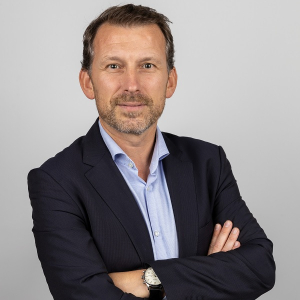Without recycling companies, there is no (circular) economy
02 October 2024

In a time when climate change and resource scarcity are forcing us to quickly transition to a circular economy, the recycling sector in Belgium and Europe is at a critical turning point. As governments at various levels in Belgium are slowly taking shape, Mark Thys, Chief Operating Officer at Renewi, and Caroline Van der Perre, Co-Owner & Manager at Raff Plastics, highlight the urgent challenges that future environmental ministers must address immediately in this legislative period. Their message is clear and urgent: recycling companies play an essential economic and social role. They want to continue fulfilling this role, but that is only possible in an environment that supports their economic activities. Without this support, Belgium and Europe risk losing the leading position they have carefully built in recent years.
What should the next environmental ministers prioritize, in your opinion?
Caroline Van der Perre: The recycling sector plays a crucial role in society and in the fight against climate change, and we are very proud of that. But to ensure that recycling companies can contribute fully, it's essential that we have a level playing field. Today, we face major challenges, such as unfair competition with primary materials and "recyclates" from Asia that do not meet the same environmental standards as in Europe. If regulations are not enforced equally everywhere, our companies are disadvantaged, and local processing and recycling into circular materials are put at risk.
Mark Thys: It is also essential that existing regulations are applied uniformly across the entire sector. This will ensure that all companies, whether local or international, adhere to the same standards. By promoting fair competition, Belgian companies will be more inclined to invest, innovate, and create local jobs. Draghi, the former president of the European Central Bank, also indicated in his recent report1 on the future of European competitiveness that a uniform waste and recycling market is essential to not only remain competitive but also to realise the circular economy that the EU is pursuing.
Moreover, it is crucial to review the administrative permitting procedures, which are becoming increasingly strict and difficult, while governments actually need this sector to remove waste and potentially harmful substances. Without further cooperation, there is no incentive to continue investing. Contributing to the circular economy is our mission, and something we absolutely want to continue doing. But for this, certain measures are indispensable, and we want to discuss these in consultation. These are an absolute priority for the future.
| "A level playing field is essential for recycling companies to continue playing their crucial role in society." |  |
You mention unfair competition with Asia. Can you explain what this means for Belgian companies?
Caroline Van der Perre: Competition with Asia mainly manifests itself through the import of recycled materials at prices lower than what we, as local recyclers in Belgium, can offer. These materials do not meet the environmental and social standards we uphold in Europe. This creates a significant competitive disadvantage for our companies, which have to comply with much stricter requirements.
Mark Thys: This not only harms our competitive position but also sends the wrong message—that environmental awareness is optional. Therefore, we call on future environmental ministers to put an end to this unfair competition by advocating for restrictions on imports that do not meet the same standards at the European level.
You also mentioned revising administrative permitting procedures. Why is this so important for the sector?
Mark Thys: The permitting procedures in Belgium are often long, complex, and expensive. It has not exactly become easier recently due to what sometimes feels like a witch hunt, companies may be discouraged from recycling locally. An urgent review of these procedures is necessary to make them more transparent, efficient and better aligned with the realities of our sector. This is by no means a plea for an unregulated 'Wild West' but rather an urgent call to make access to permits more straightforward through sector consultation. Only in this way can we invest efficiently, reduce our waste, and increase our recycling capacity. This will reduce our dependence on imported raw materials and strengthen the circular economy.
Caroline Van der Perre: That is indeed a crucial point. The delays and complexity of administrative procedures hinder innovation and the expansion of recycling companies in Belgium. A simpler and more predictable process would allow companies to better plan their investments and increase their competitiveness. This would benefit not only the companies but also the environment and the Belgian economy as a whole.
 |
"Administrative permitting procedures are becoming increasingly strict, while governments actually need this sector to remove waste and potentially harmful substances. Without further cooperation, there is no incentive to continue investing." |
Finally, what message would you like to convey to the future environmental ministers?
Mark Thys: Our message is simple: create an investment-friendly environment for recycling companies in Belgium. Ensure a level playing field by making the existing rules more targeted and harmonising standards with those in Europe and beyond. This will enable companies to recycle locally and competitively. Encourage recycling companies to invest in Belgium—they are ready and just waiting for the opportunity.
Caroline Van der Perre: We ask them to take concrete measures to support the recycling sector in Belgium. They don't have to do this alone: we are happy to sit down with them to work out solutions that promote local waste recycling together. Introducing a carbon tax on virgin materials could be a first step to counter unfair competition. By also revising the administrative procedures, we can truly make Belgium a leader in recycling and the circular economy. This is an opportunity we must seize, not just for businesses but for society as a whole.
Without recycling companies, there is no (circular) economy: climate change and resource scarcity call for rapid, decisive action. The future of the recycling sector—and thus the circular economy—depends on the policies being shaped right now.
1 Mario Draghi: “The future of European competitiveness”, september 2024.

